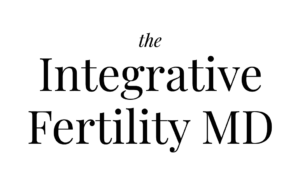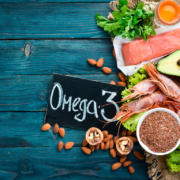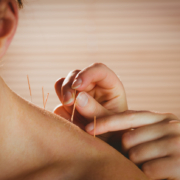What Is The Mediterranean Diet?
As a doctor who works with patients seeking integrative fertility support, I am often asked if there are specific foods the couple can eat to improve their chances of conception. Many of my clients have had success following The Mediterranean Diet for fertility.
An integrative approach to health takes into account the whole person, including all aspects of lifestyle. How and what we eat plays a crucial role in the body’s ability to heal and function optimally. While nothing can guarantee a couple’s success in conception, the Mediterranean Diet is a sound way of eating that can be sustained throughout a lifetime for good health.
What Foods Are Included?
The Mediterranean Diet has its roots in ancient times. Farmers in the area known as the Mediterranean basin commonly ate foods like sheep cheese, vegetables, olives, nuts, fresh fish, and very little meat or bread.
To incorporate this way of eating into your lifestyle, focus on eating fresh fruits and vegetables, whole grains, legumes, nuts, healthy fats such as olive oil, moderate amounts of fish, seafood, dairy, eggs, and poultry. Red meat and simple carbohydrates are limited. You can find some resources about getting started here.
Choose Fresh, Whole Foods
One of the most important things to remember is that the Mediterranean Diet features fresh, organic, minimally processed foods. When fresh foods are not available, opt for foods that have been flash-frozen to retain most of the nutrients.
A typical “western diet” full of highly processed foods is usually unfavorable to conception. Processed foods are likely to contain trans-fats, sugar, pesticides, BPA, and other ingredients that have been found to adversely affect metabolism and ovulation.
Enjoy Your Meals
The culture of the Mediterranean is also important to mention. Imagine the pleasure of enjoying fresh, healthy meals, eating slowly, and spending time in the company and conversation with friends. This is the type of mindset you will want to have while eating. Allow yourself to taste each of the flavors on your plate and take time between bites.
Having a slow, leisurely meal is unlike the way most of us Americans tend to eat. We are much more likely to grab a bite and eat while working or eat a take-out meal in our car while running errands. By slowing down during mealtimes and reducing stress you begin an integrative approach to fertility.
Benefits of The Mediterranean Diet for Fertility
Health Benefits for Women
Foods like broccoli, asparagus, brussels sprouts, and eggs are all rich in folate and B6. These minerals and vitamins have a positive relationship with the possibility of conception. Vitamin D is also essential when trying to conceive. Vitamin D helps to increase both progesterone and estrogen levels, which regulate menstrual cycles and ovulation. Dietary sources like oily fish (salmon, herring, sardines), egg yolks, and mushrooms are rich sources of Vitamin D.
The Mediterranean Diet is high in antioxidants because of the large number of fresh vegetables and fruits recommended. This creates a healthier endometrium; or mucus membrane of the uterus, preparing it for embryo implantation.
Health Benefits for Men
Women aren’t the only ones who benefit from monitoring their eating habits while trying to conceive. Men’s dietary choices play a role in conception as well. In men, Vitamin D supports both the semen quality and semen count. It can also increase their levels of testosterone, which boosts libido.
Stress and Vitamin and Mineral Levels
Trying to conceive or facing infertility treatments can be stressful for couples. Stress is known to deplete essential vitamins and minerals within the body, which can hinder pregnancy efforts. The B vitamins, vitamin C, vitamin E, magnesium, zinc, and iron are the most common nutrients affected by stress.
All of these play a vital role in fertility, as well as overall wellness. Remember, part of the Mediterranean Diet is slower, more leisurely meals. So being less stressed during meals will hopefully have a ripple effect throughout your day and allow you to retain some all-important building blocks within your body.
The Mediterranean Diet has numerous health benefits, and they reach far beyond improving fertility success. It’s never too early for men or women to adopt this lifestyle, but it is recommended to be more intentional about your choices at least three months before trying to conceive.
If you find you need additional support with your integrative fertility journey, please reach out to us online, by phone, or through one of our offices.



